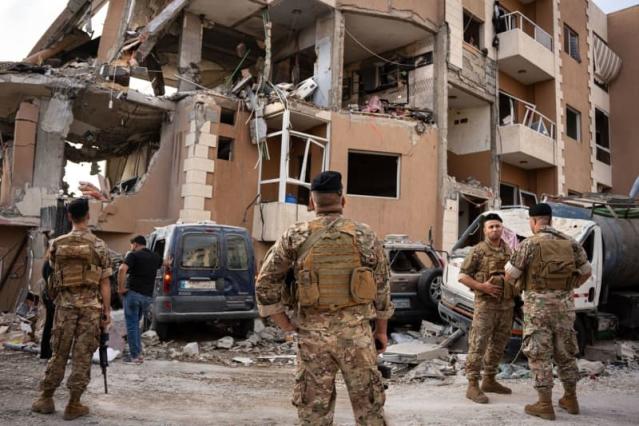…As ‘Yellow vests’ pull out of PM meeting in France fuel protests***
A report from Puerto Rico’s government says Hurricane Maria had a $43 billion impact on the U.S. territory’s economy, $1 billion more than originally estimated.
The Puerto Rico Planning Board’s report says its calculations took into account millions of dollars received so far in federal hurricane recovery funds and insurance money.
Overall, the board found that the capital of San Juan was among the six most affected cities on the island after the Category 4 storm hit in September 2017, causing more than an estimated $100 billion in damage.
“Given the magnitude of the natural disaster, the economic sectors will keep feeling the impact for an undetermined amount of time,” the report says.
The board said it came up with the $43 billion figure in part via questionnaires issued to the public and private sectors as well as statistics provided by professional associations through October.
Puerto Rico economist Jose Caraballo said in a phone interview Monday that federal aid and insurance payouts so far have covered only 24 percent of the losses reported.
“A lot remains to be done,” he said. “The economic impact of the reconstruction has not been felt.”
The government said losses for the private sector alone totaled $30 billion, with manufacturing reporting the highest loss of income and agriculture among the highest damage to infrastructure and equipment.
The report comes as Puerto Rico struggles to emerge from a 12-year-old recession and tries to restructure a portion of its more than $70 billion public debt.
As the economic crisis continues, Puerto Rico’s governor and a federal control board overseeing the island’s finances continue to clash.
On Monday, the board accused Gov. Ricardo Rossello of signing three executive orders related to increasing employee compensation or benefits without its approval. It also said Rossello has enacted nearly 100 laws without following required protocol. The board warned it would take unspecified action if the governor does not submit the required documents.
A spokesman for the governor did not immediately respond to a request for comment.
In the meantime, protesters from France’s “gilet jaunes” (yellow vests) movement have pulled out of a meeting with PM Edouard Philippe scheduled for Tuesday.
Some members of the group said they had received death threats from hardline protesters warning them not to enter into negotiations with the government.
The “yellow vests” have been protesting about a controversial fuel tax since mid-November.
But the protests now reflect more widespread anger at the government.
Three people have died since the unrest began and the resulting violence and vandalism – notably when statues were smashed at the Arc de Triomphe last Saturday – have been widely condemned.
“Yellow-vests” are so called because they have taken to the streets wearing the high-visibility yellow clothing that is required to be carried in every vehicle by French law.
The movement has grown via social media and has supporters across the political spectrum.
President Emmanuel Macron has accused his political opponents of hijacking the movement in order to block his reform programme.
How has the government responded?
The French president held an urgent security meeting on Monday. Ministers said that while no options had been ruled out, imposing a state of emergency had not been discussed during the talks.
Mr Macron has also cancelled a planned trip to Serbia to concentrate on the crisis.
Culture Minister Franck Riester told reporters that Mr Philippe would announce “a strong conciliatory gesture in the coming days”, without giving details.
Mr Philippe also spoke with leaders of the opposition on Monday.
Far-right leader Marine Le Pen, who was at the meeting, warned that Mr Macron could become the first president to give the order to open fire on his own people in 50 years.
Finance Minister Bruno Le Maire met business representatives to assess the damage caused to businesses over the weekend.
Some retailers had seen sales drop by around 20-40% during the demonstrations, while some restaurants had lost 20-50% of their takings, he added.
Fox News with additional report from BBC



















